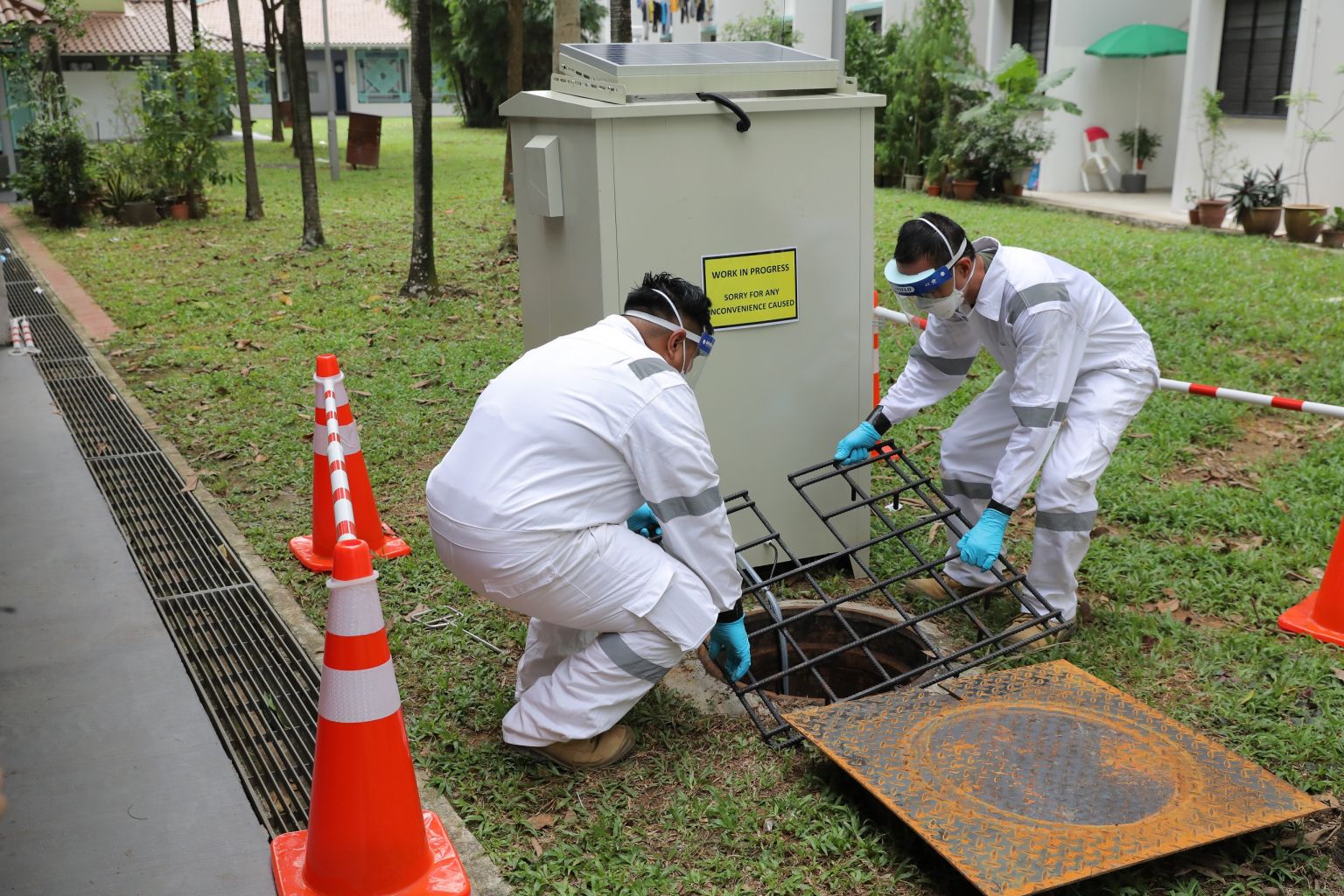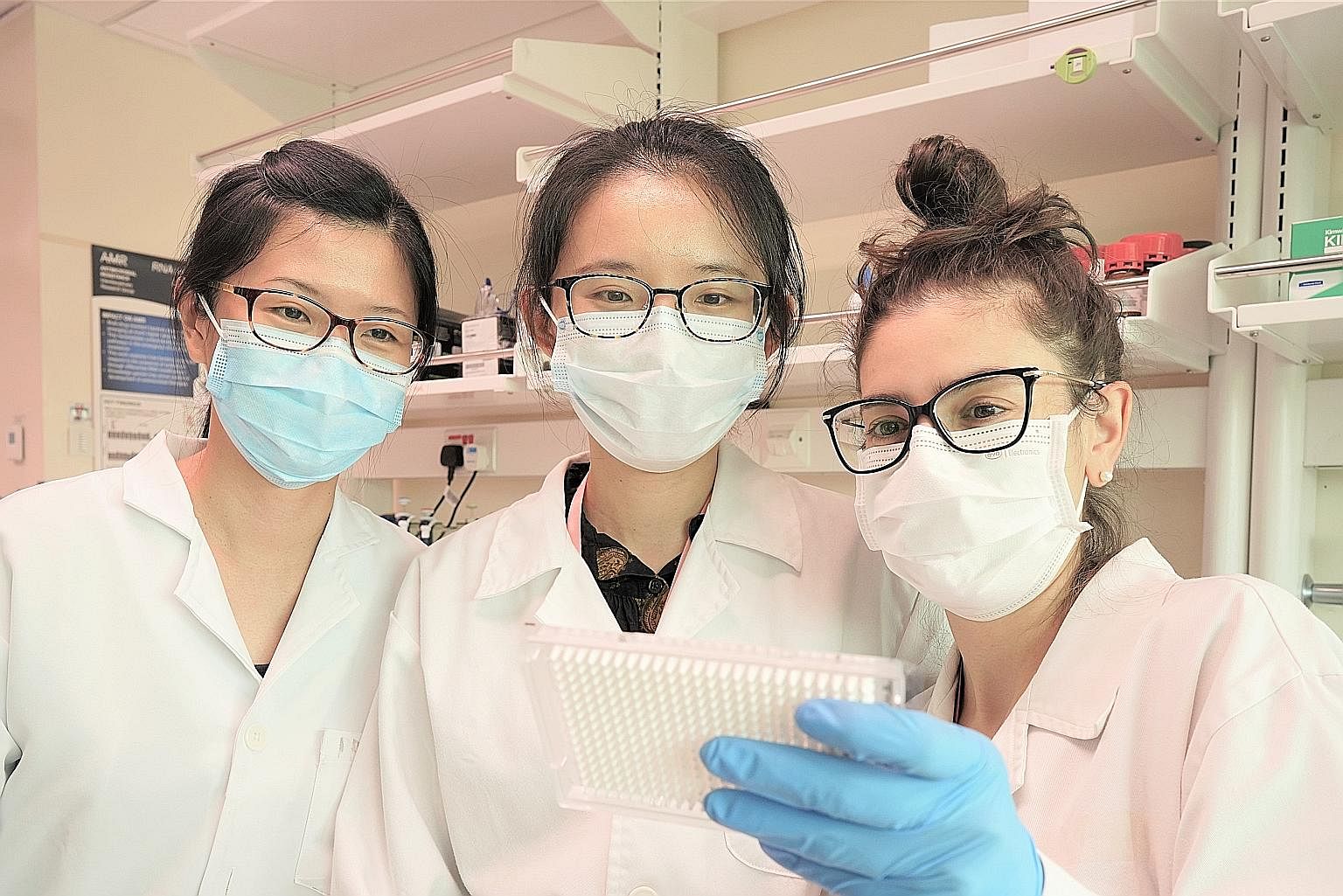Scientists developing method to detect Covid-19 variants in wastewater testing
Sign up now: Get ST's newsletters delivered to your inbox

National Environment Agency officers preparing a manhole for wastewater surveillance on July 7, 2021.
ST FILE PHOTO
Follow topic:
SINGAPORE - Scientists in Singapore are working on a test to detect the Delta (B1612) variant in wastewater surveillance for Covid-19. This follows their success in developing a viable method to detect and quantify the Alpha (B117) variant.
Common wastewater detection methods can detect only the presence of Sars-CoV-2 viral material, without identifying the variant.
To detect instances of ongoing Covid-19 transmission, wastewater testing is a non-intrusive surveillance strategy complementing DIY and clinical swab testing here.
The National Environment Agency (NEA) is monitoring more than 200 sites, including workers' dormitories, hostels, and nursing homes, and it will be doubling the number of sites under surveillance by next year.
To analyse wastewater samples for the variants, researchers from the Singapore-MIT Alliance for Research and Technology (Smart) used the RT-qPCR technique - commonly used in polymerase chain reaction tests - and modified it.
The technique works by checking for differences in Sars-CoV-2's genetic sequence, which will identify the variant, said Dr Lee Wei Lin, a research scientist at the Antimicrobial Resistance Interdisciplinary Research Group at Smart.
Another popular technique used for variant tracking in wastewater samples is known as next-generation sequencing.
This technique studies the sequence of viral RNA to identify genetic variants of the Sars-CoV-2 virus in the sample.
But it is time consuming, expensive, and lacks the sensitivity required to accurately detect variants in wastewater samples where there may be low viral levels, said Dr Lee, who is the first author of a research paper on the findings.
In comparison, the technique developed by the researchers is able to produce reliable results in samples with diluted viral concentrations, and which may contain multiple Sars-CoV-2 lineages. This means that the test can still detect and quantify the amount of Alpha variant within a wastewater sample that may also contain other variants, she added.
It is also able to generate results in a couple of hours and can be implemented using commercially available RT-qPCR protocols, said Dr Lee.

Singapore-MIT Alliance for Research and Technology researchers (from left) Lee Wei Lin, Gu Xiaoqiong and Federica Armas evaluating a 384-well plate set up for variant detection tests.
PHOTO: ZHAN YI LEE
The paper, which was published in the scientific journal Environmental Science & Technology Letters, also details the open-source method and its development so that it can be freely used by other organisations and research institutes for their work on wastewater surveillance of the SARS-CoV-2 virus and its variants.
The testing method is currently utilised by wastewater epidemiology company Biobot Analytics in the United States.
The Smart researchers are also working closely with wastewater groups to use the variant detection tests for campus surveillance at the National University of Singapore and the Nanyang Technological University.
The team is now working to develop tests to detect and quantify the Delta variant - which is behind the Jurong Fishery port cluster, the largest in Singapore.
Dr Lee said: "Early detection of variants within a localised vicinity through wastewater surveillance...(can) serve as an early warning system and guidance for policymakers as they trace infection clusters and consider suitable public health measures."

